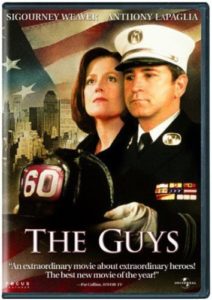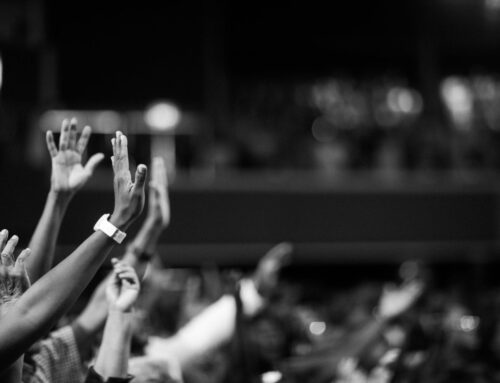In just two days we will commemorate the 20th anniversary of the event that changed us as a nation. With the attacks on the World Trade Center and the Pentagon, we suffered the “largest attack by any foreign entity on U.S. soil.” We know it simply as 9/11.
How do we cope?
How do you cope with such horrific loss? With over 3000 lives lost, how did/do you sort out your feelings? Especially as we watch desperate situations unfold before us through the wonders of modern technology, we see things as they happen. We didn’t grow up with this instant involvement in the world’s tragedies. But that’s our life today.
On 9/11 we watched planes crash into buildings in New York City and Washington D.C. In the past month we have seen desperate people trying to evacuate Afghanistan in the face or an untenable future; Haiti being hit by another devastating earthquake; Louisiana enduring a historic hurricane. All these images, all these stories are overwhelming. What we see is masses of people. But each mass is made up of individuals: old and young, rich and poor, from many races and many walks of life.
Grieving Vietnam
I remember how I was impacted by the Vietnam war. Overcome by the hugeness of it all, I had no tangible way of processing the images and the statistics continually bombarding me. And then the June 27, 1969 issue of LIFE Magazine arrived.
With the magazine open to the featured article “Vietnam: One Week’s Dead”, I knelt by my bed and did not get up until I had studied the photo of each serviceman who had been killed between May 28 and June 3 of that year. All 242 of them. I met the men I would never chance to see again, read their names, ages, and hometowns, and mourned their deaths. Although I could not grasp the enormity of the war I could grieve the American soldiers who had lost their lives that week.
We focus on small parts—not the whole, on individuals—not everyone
 “The Guys” a film starring Sigourney Weaver and Anthony LaPaglia, is a great example. The movie tells the haunting story of Nick, a New York fire captain who has been asked to give the eulogies for eight of his men who perished on September 11. Grief overwhelms him and he has no words to express his sorrow or to comfort the friends and families of the fallen. He turns to Joan, a New York City journalist, who helps him find words and give them structure.
“The Guys” a film starring Sigourney Weaver and Anthony LaPaglia, is a great example. The movie tells the haunting story of Nick, a New York fire captain who has been asked to give the eulogies for eight of his men who perished on September 11. Grief overwhelms him and he has no words to express his sorrow or to comfort the friends and families of the fallen. He turns to Joan, a New York City journalist, who helps him find words and give them structure.
“Tell me about Jimmy,” Joan says, or Patrick, or one of the others. Nick shakes his head and gropes for some image, some fragment of a conversation lingering in his mind. Just words and phrases—”mischief,” “lives with his parents,” “kitchen”—provide hooks for Joan as she gently, persistently coaxes from Nick pictures of the missing men. Her gentle probing and ability to organize his scattered thoughts bring these lost lives into clear focus. The results of their grueling efforts are stunning.
It’s as if Nick had never seen his guys fully until this experience. Even his knowledge of his best friend, Patrick, crystalizes through the agonizing process of preparing Patrick’s eulogy.
This film’s magnetic power
The magnetic power this film has on me is two-fold. Joan’s insight, patience, and hunger to breathe life into the memories of Nick’s comrades allow her to persistently grapple with this project. She seems to know intuitively that there is something deep and real that needs to be salvaged from the wreckage of September 11. Joan is willing to do the hard work to uncover the treasure. As a writer who tells people’s stories, I am moved and challenged by Joan’s example.
But more than that, it is the value of the individual, the uniqueness of each person who has ever lived, that calls me back to this intense dialog. My feelings are like those that Joan expresses as she struggles to come to terms with the sudden and devastating loss of life in New York, her beloved city. “I knew that every time I saw someone on the street I just saw his public shadow. The rest, the important part, lived in layer after layer beyond my view. We have no idea what wonders are hidden in the people around us.”
“We have no idea what wonders are hidden in the people around us.”
Each person who has been lost in a tragedy throughout time is a grievous loss. Each one was made with “hidden wonders” because each was made in the image of God. But, as we discussed in an earlier post, we were all lost in the greatest tragedy of all time. The Fall. Yet the God we had turned against in the Garden provided redemption for us through his Son Jesus.
Every individual matters to God. Lest the tragedies of life tempt you to doubt that, look to God’s Word. He told Israel through the prophet Jeremiah, “I have loved you with an everlasting love” (Jer 31:3a). And remember the words of Jesus in Luke 12:6-7: “Are not five sparrows sold for two pennies? Yet not one of them is forgotten by God. 7 Indeed, the very hairs of your head are all numbered. Don’t be afraid; you are worth more than many sparrows.”
You are worth more than many sparrows to God, my friend. And so are the individuals that are victims of tragedies. This is a sweet truth we cling to, in the midst of calamity or calm.
Ginger
Yesterday I heard a news story featuring Ann Van Hine whose firefighter husband died on September 11. Over the past 20 years she has worked through the fallout of 9/11 as a widow and a woman of God. Her book, Pieces Falling, is available here.





I just ordered the Kindle version of Ann Van Hine’s book. It’s free today! Your post touches my heart. It is hard to feel anything but overwhelmed in the face of mass tragedies, but remembering that wonders are hidden in each individual, and grieving those lost as people precious to God, helps me. Your quotes from journalist Joan are profound. I’m sharing this one!
Thank you, Joan, for your thoughtful response. Mass tragedy is, indeed, a heavy burden for us. But God sees every sparrow fall, whether the bird or the human he was referring to in Luke 12. And that truth brings relief. God is bigger than our deepest sorrow.
Enjoy Ann Van Hine’s book! I bought it too and have enjoyed the part I have read so far.
Ginger